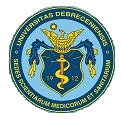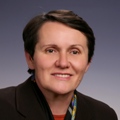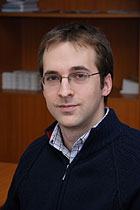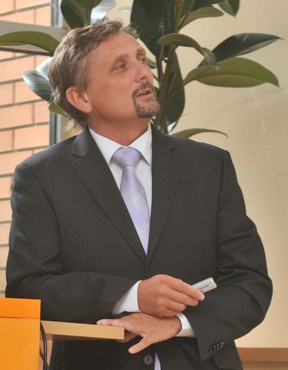|
|
EUBIROD Partner since 2008

|
University of Debrecen
Department of Preventive Medicine
Faculty of Public Health
Kassai street 26, Postal code:4028; P.O.Box: 9; Debrecen, Hungary
Ph.:+36 52 417 267
Fax:+36 52 417 267
Email:z.koosne@sph.dote.hu
http://www.ud-mhsc.org/
|
Scientific Coordinator
|

|
|
Prof.Roza Adany, MD, PhD, DSc, Professor, Head of the Department of Preventive Medicine
Róza Ádány is doctor of the Hungarian Academy of Sciences, founding Dean of the Faculty
of Public Health of the University of Debrecen, Head of the Department of Preventive Medicine,
leader of the Public Health Research Group funded by the Hungarian Academy of Sciences (HAS),
president of the Scientific Committee on Preventive Medicine of HAS, chairperson of the
College of Preventive Medicine and Public Health, president of the National Association of
Public Health Training and Research Centres, member of the National Committee on Public Health
Genomics; chief editor of the journal ‘Népegészségügy’ (Public Health).
She was chairperson of the Association of Schools of Public Health in the European Region
(ASPHER) between 2001-2003. Her scientific research in the past decades achieved international
significance regarding the identification of susceptibility biomarkers of neoplastic and
cardiovascular diseases; investigation of the structure and causes of premature mortality
of the Hungarian population; and evaluation of interventions aiming at the improved efficiency
of prevention. The number of her scientific publications is 244 with a cumulative impact
factor over 400, her studies have been cited more than 1600 times by foreign authors.
Manuals titled ‘Tumor Matrix Biology’ (CRC Press, 1995), ‘The health status of the
Hungarian population at the turn of millennium’ (Medicina, 2003), the first Hungarian
Dictionary of Epidemiology (Medicina, 2003) and the textbooks ‘Preventive Medicine and
Public Health’ (Medicina, 2006, 2012) and ‘Public Health Genomics’are of stop-gap significance
among her works. She took substantive part in the launch of the Hungarian public health
program. She received several prestigious Hungarian and international awards in
acknowledgement of her work like the “For Hungarian Higher Education” medal,
Széchenyi fellowship, Szent-Györgyi Albert prize, Hatvani prize and Pro Urbe Award of
Debrecen City, Semmelweis prize, Hőgyes Endre prize, Szilárd Leó fellowship, and the
“Distinguished Scientist Award” of the Japanese Society for the Promotion of Science.
|
Official Delegate
|

|
|
Attila Nagy, MD, Assistant lecturer, Division of Biostatistics and Epidemiology,
Department of Preventive Medicine
Attila Nagy graduated as a medical doctor at the University of Debrecen in 2005.
He also graduated, as an epidemiologist at the Faculty of Public Health, University of
Debrecen in 2008. He obtained his medical specialization in preventive medicine in 2009
and his PhD absolutorium in 2013 (University of Debrecen). He is involved in the
undergraduate degree training programmes and in the master training programs at the
Faculty of Public Health: preventive medicine seminars, lectures (medical students),
epidemiology / biostatistics lectures and seminars (publich health inspectors,
physiotherapists, Bsc and Msc in Public Health). He possesses language skills in English
(level C1) and German (level B1).
|
Staff
|

|
|
Sandor Janos, MD, PhD, Head of department of Biostatistics and Epidemiology,
University of Debrecen Faculty of Public Health
János Sándor is the Head of the Division of Biostatistics and Epidemiology at the
Faculty of Public Health, Medical and Health Science Centre, University of Debrecen.
He graduated as a medical doctor at University of Pécs in 1990.
He obtained qualification on Epidemiology and Hygiene in 1997.
He defended his PhD on Investigation of Geographical Health Inequalities in 2003
and also obtained Qualification on Preventive Medicine and Public Health in the
same year. The number of his scientific publications is 101 with a cumulative
impact factor over 148, his studies have been cited more than 250 times by
foreign authors.
|
|